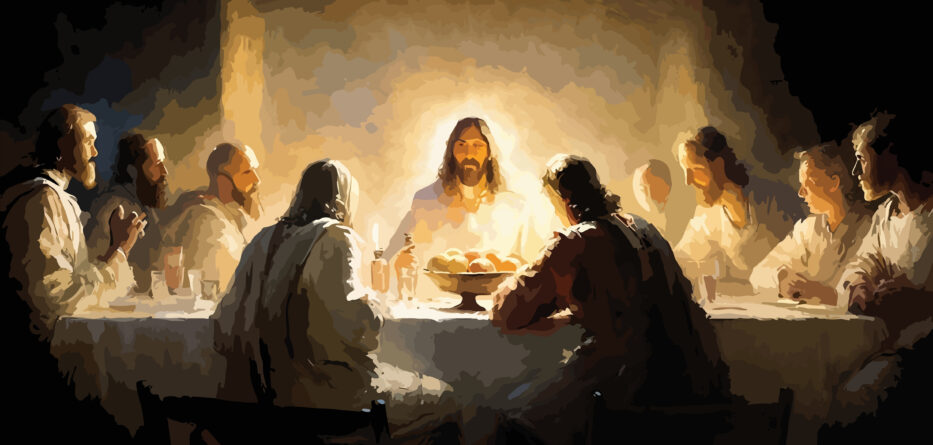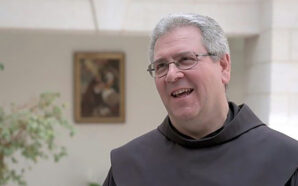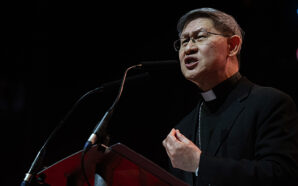23rd Sunday in Ordinary Time
Ezekial 33:7-9; Psalm 95; Romans 13:8-10; Matthew 18:15-20
10 September 2023
There are divisions and disagreements in every human community. Our Church is no exception. There are individuals who do and say wicked things in every society. The Catholic Church is no exception. At the time of Jesus, there were divisions and disagreements in Judaism, and there were divisions and disagreements amongst his fledgling group of followers.
In today’s gospel from Matthew, Jesus sets out a three step process to correct wickedness and to restore unity and truth in the community.
‘If your brother does something wrong, go and have it out with him alone, between your two selves. If he listens to you, you have won back your brother. If he does not listen, take one or two others along with you: the evidence of two or three witnesses is required to sustain any charge. If he refuses to listen to them, tell the church (ekklēsia). And if he refuses to listen to the church (ekklēsia), let him be to you like a Gentile and a tax collector.’
The only other occurrence of the word ekklēsia is also in Matthew’s gospel when Jesus says to Peter: ‘And I say to you that you are Peter, and upon this rock I will build my church (ekklēsia), and the gates of Hades will not prevail over it.’
Scripture scholar Daniel Harrington describes this word ekklēsia: ‘The local congregation is meant, whether in formal assembly for meeting or through its board of elders. The term ekklēsia distinguishes the Christian community from “their synagogues.”’[1] Harrington says that the three step process for correcting an erring brother and restoring unity in the community of Jesus’ followers is similar to that adopted by the Qumran community.
Over the centuries, these verses of scripture have informed much of our thinking and practice about forgiveness, the sacrament of confession, and the requirements for church unity in doctrine and practice. But we always like to try and get back to the basics of what Jesus was teaching and what his band of followers were practising when it came to wrong doing and division.
Timothy Radcliffe recalls that when he was elected Master of the Dominicans in 1992 he was summoned to a meeting with Cardinal Ratzinger expecting to encounter one who the media had described as God’s rottweiler. His experience was altogether different. He discovered that Ratzinger was ‘the easiest person with whom to deal in the Vatican, always humble, simple and open to dialogue if one was open to dialogue with him’[2]. Ratzinger expressed concerns about South African Dominican Albert Nolan’s book Jesus Before Christianity. Radcliffe and Ratzinger smiled and agreed that any action taken against the author would only increase the book sales.
In a newly released book of tributes to Albert Nolan entitled Reluctant Prophet, Timothy Radcliffe confesses, ‘I have always been a little uneasy about the search for the historical Jesus which the book does undertake. I felt that there is always the danger that in trying to find Jesus prior to the interpretations of the gospels and tradition one will usually end up with the person whom one wishes to find.’ The book of tributes includes one from an Australian Paul Burke who had used Jesus before Christianity in many meetings of the Tertiary Catholic Federation of Australia (TCFA) a back in the 1970s. Burke recalls that a young Neil Ormerod, now one of our most distinguished Australian theologians, had ‘thought that the task Albert Nolan had set himself to subtract the accretions of the later organised church to recover the original significance of the message of Jesus was an impossible and hence misguided project’.[3]
Daniel Harrington tells us that the text of today’s gospel ‘outlines a process to be used in bringing back to full communion a member who sins (18:15–17). The sayings about binding and loosing (18:18) and the two or three gathered in Jesus’ name (18:19–20)—whatever their original context may have been and whatever their applications have been through the centuries—provided a theological foundation for community decisions: God stands behind them, and Jesus abides within the community gathered in his name’.[4]
It’s no secret that in our Church on the eve of the Synod for a Synodal Church, there are divisions and animosities all the way to the top, and some of them quite nasty, and perhaps even wicked. At World Youth Day, Pope Francis met with the Jesuits of Portugal. One Jesuit who had just spend a sabbatical year in the USA, said to Francis: ‘There was one thing that made a great impression on me there, and at times made me suffer. I saw many, even bishops, criticizing your leadership of the Church.’ [5] Francis replied: ‘You have seen that in the United States the situation is not easy: there is a very strong reactionary attitude. It is organized and shapes the way people belong, even emotionally. I would like to remind those people that indietrismo (being backward-looking) is useless and we need to understand that there is an appropriate evolution in the understanding of matters of faith and morals’. He went on to say: ‘Here, our understanding of the human person changes with time, and our consciousness also deepens. The other sciences and their evolution also help the Church in this growth in understanding. The view of Church doctrine as monolithic is erroneous. But some people opt out; they go backward… When you go backward, you form something closed, disconnected from the roots of the Church and you lose the sap of revelation. If you don’t change upward, you go backward, and then you take on criteria for change other than those our faith gives for growth and change. And the effects on morality are devastating. The problems that moralists have to examine today are very serious, and to deal with them they have to take the risk of making changes, but in the direction I was saying.’
On Monday, Pope Francis was returning from Mongolia. On his regular mid-flight press conference flying back to Rome, he was asked:[6]
‘Holy Father, you have just spoken about the Synod and we all agree with you that this Synod has generated much curiosity and interest. Unfortunately, it has also brought forth much criticism from various Catholics. Here, I am referring to a book with a prologue by Cardinal Burke, who says that the Synod is a “Pandora’s box” from which calamities for the Church will come. What do you think of that viewpoint? Do you think it will be overcome by reality or could it influence the Synod?’
Francis replied: ‘A few months ago, I telephoned a Carmelite, and said to the Prioress: “How are the nuns doing, Mother Superior?” She was a non-Italian Carmelite, and she finally replied: “Your Holiness, we are concerned about the Synod.” I said jokingly, “Now what’s going on? Do you want to send a sister to the Synod?” “No, we are afraid you are going to change doctrine.” And this is what she was saying, she had this idea… But if you go to the basis of these ideas, you will find ideologies. In the Church, whenever people want to attack the path of communion, it is always an ideological attack. And they accuse the Church of this or that, but they never make a true accusation: that it is made up of sinners. They never speak of sinners. They defend a “doctrine”, a doctrine like distilled water that has no taste and is not the true Catholic doctrine, which is in the Creed. And very often, true Catholic doctrine scandalizes people. How scandalous is the idea that God became flesh, that God became Man, that Our Lady kept her virginity? This scandalizes. Catholic doctrine sometimes scandalizes. Ideologies are all distillations, they never scandalize.’
Let’s cut to the chase. Is it just too late, or is it way too early, to hope that the sinners Pope Francis and Cardinal Burke could follow the three phase process set out in today’s gospel? Or when there are such acute theological differences, is there no prospect of fraternal unity? Is there no chance of a Radcliffe-Ratzinger moment when Francis and Burke next meet? Whatever our theological differences as we approach the Synod next month, let’s maintain a sure hope that God stands behind us, and Jesus abides within the community gathered in his name. And let’s all have the humility to accept that Jesus is not just a cardboard cutout of the person we would wish to find – usually one in our own image.
[1] Daniel J. Harrington, The Gospel of Matthew, Sacra Pagina Series (Collegeville, MN: Liturgical Press, 2007), p. 269.
[2] Mike Deeb et al (eds.), Reluctant Prophet: Tributes to Albert Nolan OP, ATF Press, Adelaide, 2023, p. xxii
[3] Ibid, p. 61
[4] Daniel J. Harrington, op. cit., p. 271.
[5] See https://www.laciviltacattolica.com/the-water-has-been-agitated/
[6] See https://www.vatican.va/content/francesco/en/speeches/2023/september/documents/20230904-mongolia-voloritorno.html








